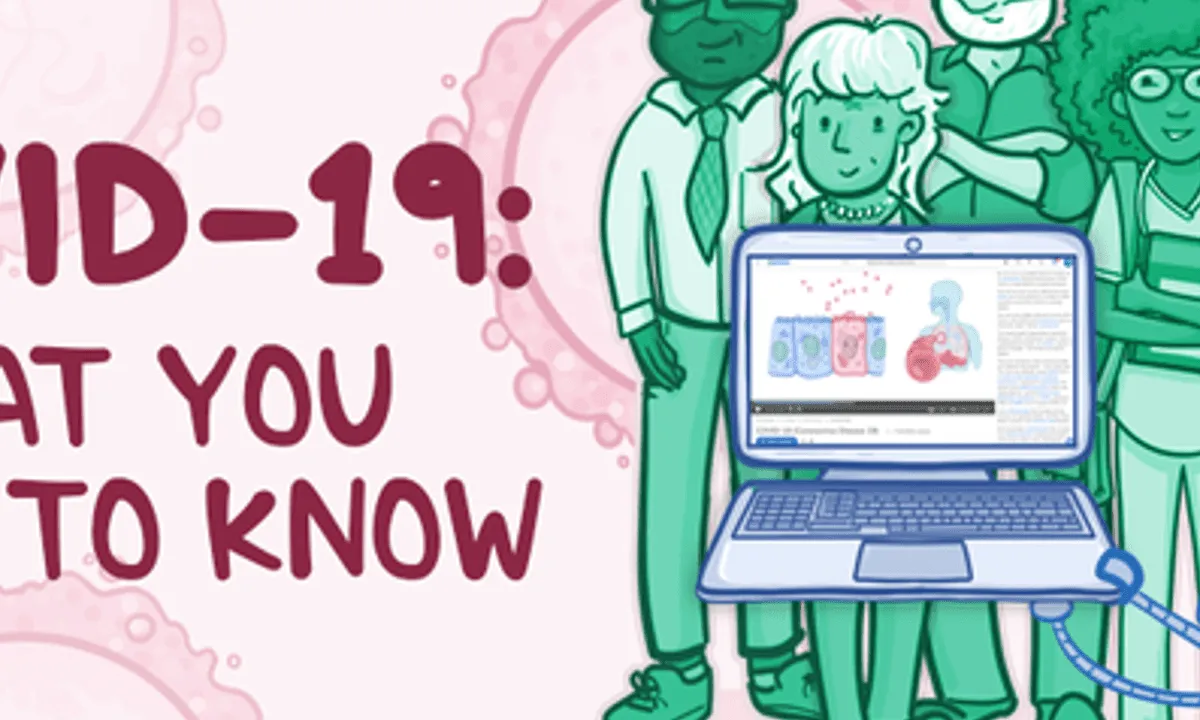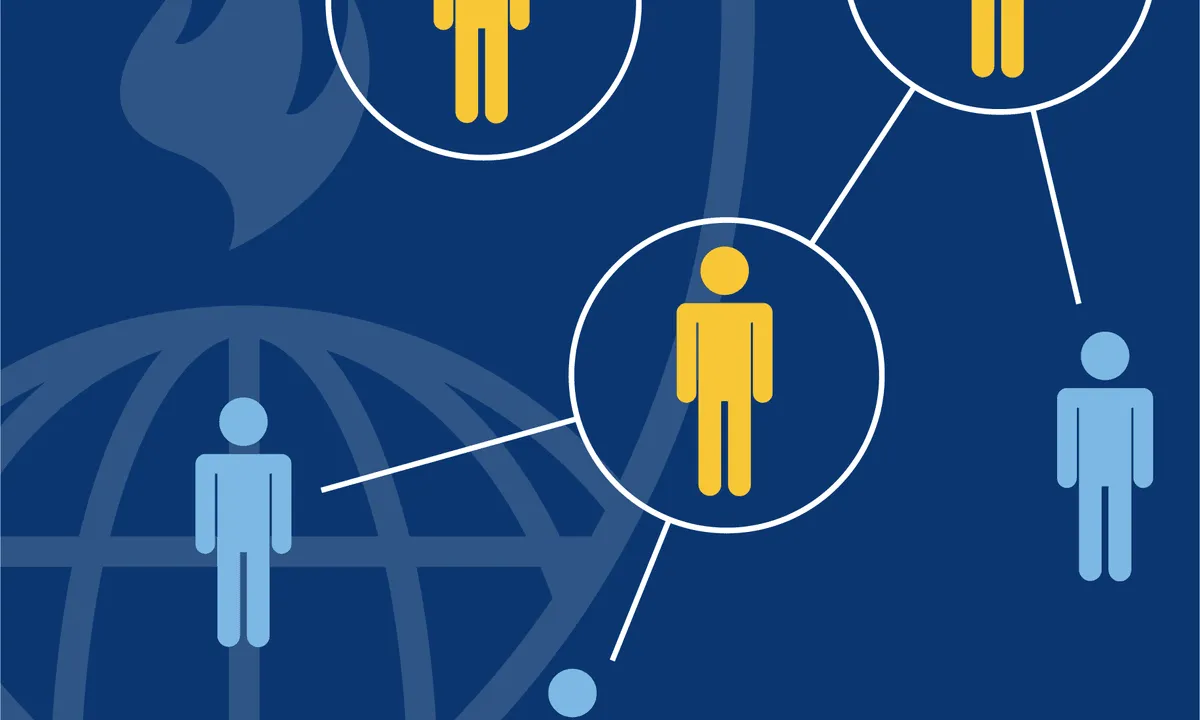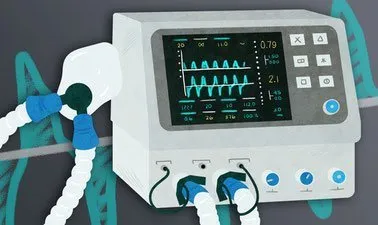
COVID-19: What You Need to Know 
This free course provides an overview of the COVID-19 pandemic, including the basics, personal protective equipment, diagnostics, and other material. It is regularly updated with the latest information from the CDC, WHO, and other leading agencies. Healthcare professionals can help to #RaiseTheLine by becoming prepared to treat COVID-19. Join now to learn the skills and knowledge needed to stay safe and informed. ▼
ADVERTISEMENT
Course Feature
![]() Cost:
Cost:
Free
![]() Provider:
Provider:
Coursera
![]() Certificate:
Certificate:
Paid Certification
![]() Language:
Language:
English
![]() Start Date:
Start Date:
23rd Jul, 2023
Course Overview
❗The content presented here is sourced directly from Coursera platform. For comprehensive course details, including enrollment information, simply click on the 'Go to class' link on our website.
Updated in [May 25th, 2023]
This course, COVID-19: What You Need to Know, provides an overview of the current pandemic and the necessary steps to take in order to protect yourself and others. Participants will learn about the basics of the virus, personal protective equipment, diagnostics, and other material. The course is free and regularly updated with the latest information from the CDC, WHO, and other leading agencies. Healthcare professionals can help to #RaiseTheLine by becoming prepared to treat COVID-19.
[Applications]
Completing this course will provide healthcare professionals with the knowledge and skills necessary to effectively respond to the COVID-19 pandemic. Healthcare professionals can apply the knowledge gained from this course to help protect themselves and their patients from the virus, as well as to provide accurate information to the public. Additionally, healthcare professionals can use the information from this course to help inform their decisions when it comes to the diagnosis and treatment of COVID-19 patients.
[Career Paths]
1. Public Health Officer: Public health officers are responsible for monitoring and responding to public health threats, such as the COVID-19 pandemic. They work with local, state, and federal agencies to develop and implement strategies to protect the public from health threats. With the rise of the COVID-19 pandemic, public health officers are in high demand and the role is expected to continue to grow in the coming years.
2. Infectious Disease Specialist: Infectious disease specialists are medical professionals who specialize in the diagnosis and treatment of infectious diseases, such as COVID-19. They work with public health officials to develop strategies to prevent and control the spread of infectious diseases. As the COVID-19 pandemic continues to spread, the demand for infectious disease specialists is expected to increase.
3. Epidemiologist: Epidemiologists are public health professionals who study the patterns, causes, and effects of health and disease conditions in defined populations. They use this information to develop strategies to prevent and control the spread of infectious diseases, such as COVID-19. With the rise of the pandemic, the demand for epidemiologists is expected to increase in the coming years.
4. Healthcare Administrator: Healthcare administrators are responsible for managing the day-to-day operations of healthcare organizations. They work with public health officials to develop strategies to respond to the COVID-19 pandemic, such as implementing safety protocols and ensuring that healthcare organizations have the necessary resources to respond to the pandemic. The demand for healthcare administrators is expected to increase in the coming years as the pandemic continues to spread.
[Education Paths]
1. Public Health: Public health degrees are designed to prepare students to work in the field of public health, which includes the prevention and control of disease, injury, and disability. This degree path is becoming increasingly important as the world faces the COVID-19 pandemic. Students will learn about epidemiology, biostatistics, health policy, and health services administration.
2. Infectious Disease: Infectious disease degrees are designed to prepare students to work in the field of infectious disease, which includes the prevention and control of infectious diseases. This degree path is becoming increasingly important as the world faces the COVID-19 pandemic. Students will learn about microbiology, immunology, epidemiology, and public health.
3. Nursing: Nursing degrees are designed to prepare students to work in the field of nursing, which includes the care of patients in a variety of settings. This degree path is becoming increasingly important as the world faces the COVID-19 pandemic. Students will learn about anatomy, physiology, pharmacology, and patient care.
4. Emergency Management: Emergency management degrees are designed to prepare students to work in the field of emergency management, which includes the planning and response to disasters. This degree path is becoming increasingly important as the world faces the COVID-19 pandemic. Students will learn about disaster preparedness, response, and recovery.
Course Syllabus
COVID-19: What You Need to Know
Register for this free course here: https://www.coursera.org/learn/covid-19-what-you-need-to-know?edocomorp=public-health-free-courses COVID-19 is a global pandemic that has already resulted in millions of infections and hundreds of thousands of deaths, with many more anticipated. This course is a go-to resource that will be regularly updated with all of the current information put forth by the CDC, WHO, and other leading agencies and covers the basics, personal protective equipment, diagnostics, and other material. Becoming familiar with the signs, learning how to manage the symptoms, and doing your part to mitigate the spread of COVID-19 will reduce the burden on our healthcare system and raise the line. This course will teach you to:- Recognize the symptoms, diagnosis, and treatment of COVID-19- Identify how COVID-19 has spread around the world- Apply into practice the public health measures we need to help mitigate the spread of COVID-19. As a healthcare professional, you can help to #RaiseTheLine by becoming prepared to treat COVID-19. 681 thousand deathsPros & Cons

Excellent course content

Informative and concise

Detailed information about COVID19

Motivated to implement strategies

Highly recommend

Informative lessons on prevention

No free certificate

Charged for certificate

No email of certificate
Course Provider

Provider Coursera's Stats at AZClass
Discussion and Reviews
0.0 (Based on 0 reviews)
Explore Similar Online Courses

Basic Recommender Systems

Youth Mental Health: Supporting Young People Using a Trauma Informed Practice

Python for Informatics: Exploring Information

Social Network Analysis

Introduction to Systematic Review and Meta-Analysis

The Analytics Edge

DCO042 - Python For Informatics

Causal Diagrams: Draw Your Assumptions Before Your Conclusions

Whole genome sequencing of bacterial genomes - tools and applications

COVID-19 Contact Tracing

Mechanical Ventilation for COVID-19


Start your review of COVID-19: What You Need to Know